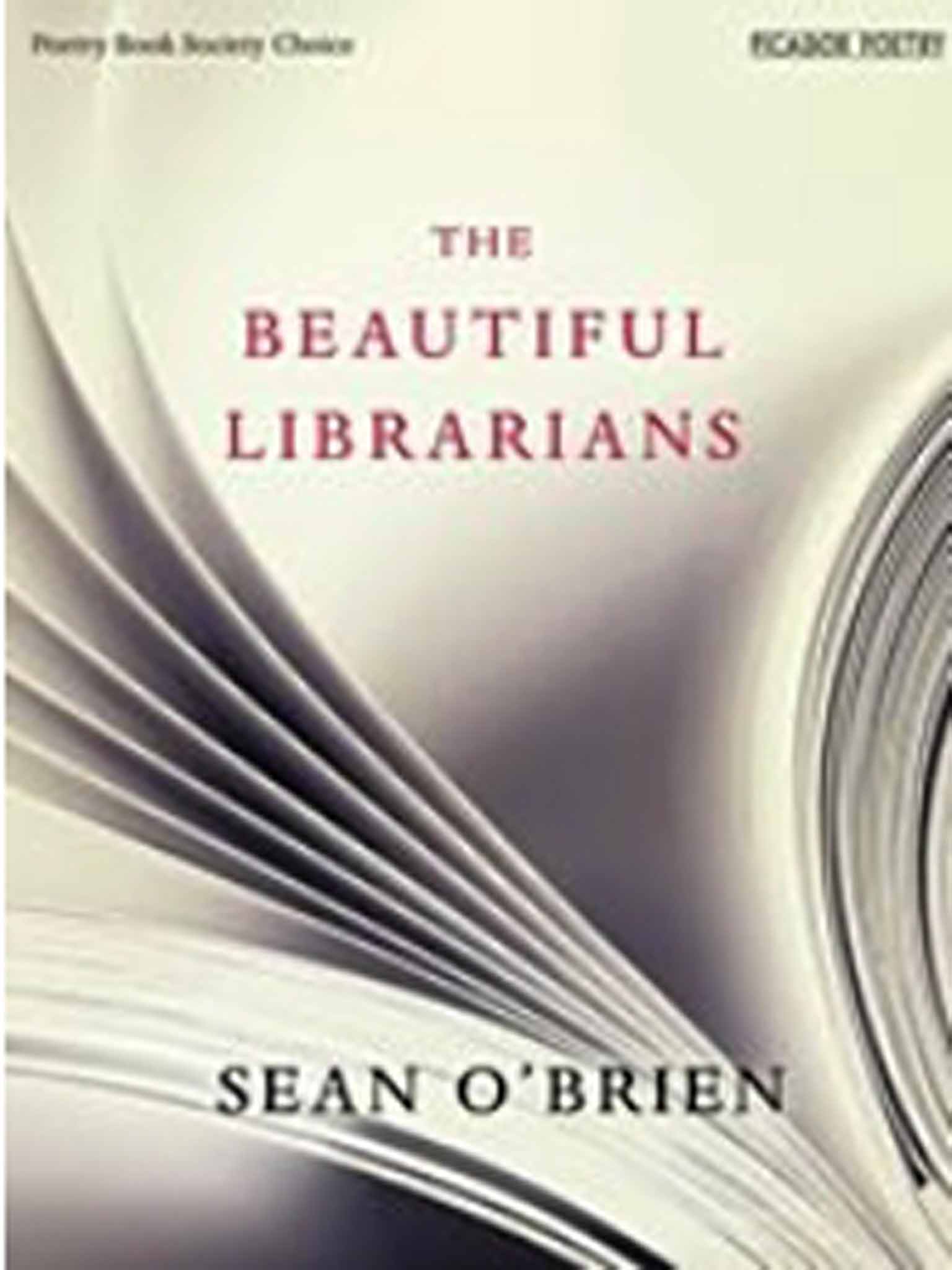The Beautiful Librarians by Sean O'Brien - book review: Old-world pleasures shot with pathos
If O'Brien's politicised raging is a bit obvious, his intimations of mortality are anything but. One of our finest poets just got finer still.

Your support helps us to tell the story
From reproductive rights to climate change to Big Tech, The Independent is on the ground when the story is developing. Whether it's investigating the financials of Elon Musk's pro-Trump PAC or producing our latest documentary, 'The A Word', which shines a light on the American women fighting for reproductive rights, we know how important it is to parse out the facts from the messaging.
At such a critical moment in US history, we need reporters on the ground. Your donation allows us to keep sending journalists to speak to both sides of the story.
The Independent is trusted by Americans across the entire political spectrum. And unlike many other quality news outlets, we choose not to lock Americans out of our reporting and analysis with paywalls. We believe quality journalism should be available to everyone, paid for by those who can afford it.
Your support makes all the difference.Sean O'Brien's 12th collection of verse is blurbed as "a book of dramatic variety in which every poem opens on a wholly different room, vista or landscape". As with even the finest adverts this proves both true and, to use a favourite O'Brien word, not.
His work inhabits hotel lobbies and high-speed trains, long-gone poolside summers and clapped-out pubs. Lightish verse ("Damn Right I Got the Blues: Ovid Live in Tomis") rubs shoulders with near-epics, by O'Brien's standards, like "Thirteen O'Clocks". Balancing this diversity are poems that begin like photocopies of each other: "As the light fails/Down on the path by the Metro line…men walk with dogs" ("Daylight Saving") and "The path that runs beside the Metro, walked/By sober adults and their upright dogs" ("Wendigo").
O'Brien is especially good at comic spikiness. The Larkinesque "Old Lads at the Ramshill Hotel" pokes fun at ageing crooners – "these wobbly suitors with grease-grey quiffs/And suits which are older than they are" – serenading "ferocious and backcombed, the cackling ladies". But when O'Brien asks, "What lady can resist such old-school, old-world/Underwear-removing charm", one isn't sure whether to cry with laughter or at the pathos of it all.
The pleasures and despair of old-school old-worlds are threaded through the 39 poems. O'Brien's title work is a fond(ish) reverie for librarians who looked "like Françoise Hardy's shampooed sisters". These "ice queens in the realms of gold" are frozen both by memory and, as the Keats quote hints, by art: "Once I glimpsed the staffroom/Where they smoked and (if the novels/Were correct) would speak of men."
Beauty's fragility in the face of mortality runs throughout. O'Brien pours cold water over comforting expressions of eternity more than once: "The morning lasts forever. It does not" ("Always"). "This too is forever, forever and ever, amen,/Impossible, impossible…" ("Wedding Breakfast")
The lure of artistic memorialisation offers scant consolation. In "War Graves", O'Brien asks: "Must this be/'The trap of elegy', to find ourselves composed/Entirely of literature. To have no exit from the immortality that holds us… ." Amnesiac generations transform the transcendental promise of an afterlife into prison sentences without parole: "an ignorant posterity/That cannot seal the yawning grave, still less survive it?" If O'Brien's politicised raging is a bit obvious, his intimations of mortality are anything but. One of our finest poets just got finer still.
Join our commenting forum
Join thought-provoking conversations, follow other Independent readers and see their replies
Comments